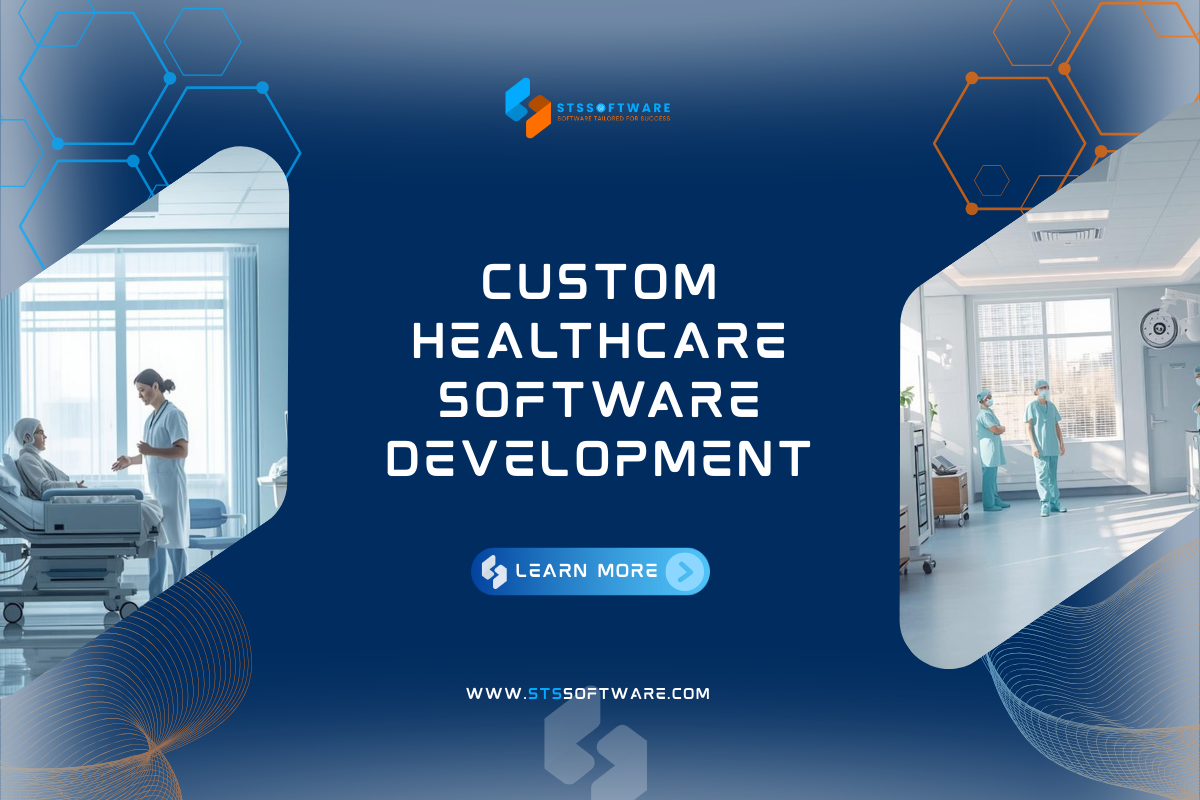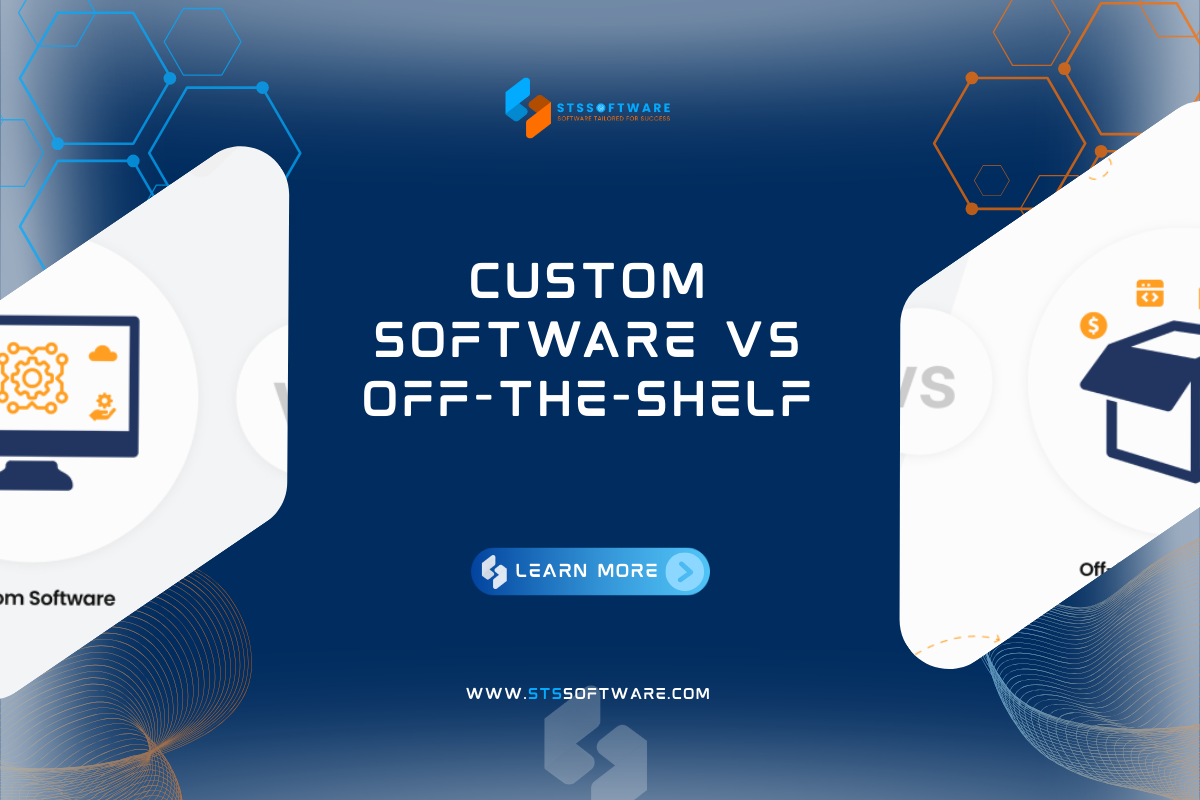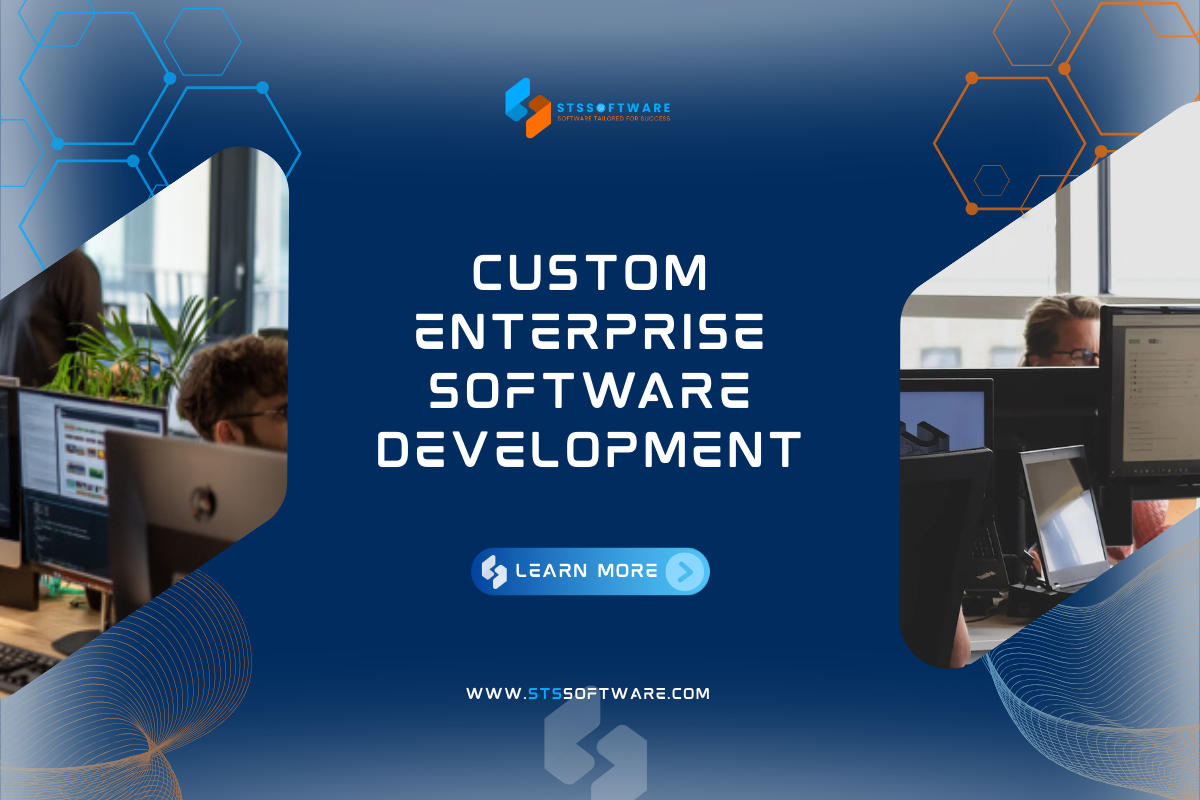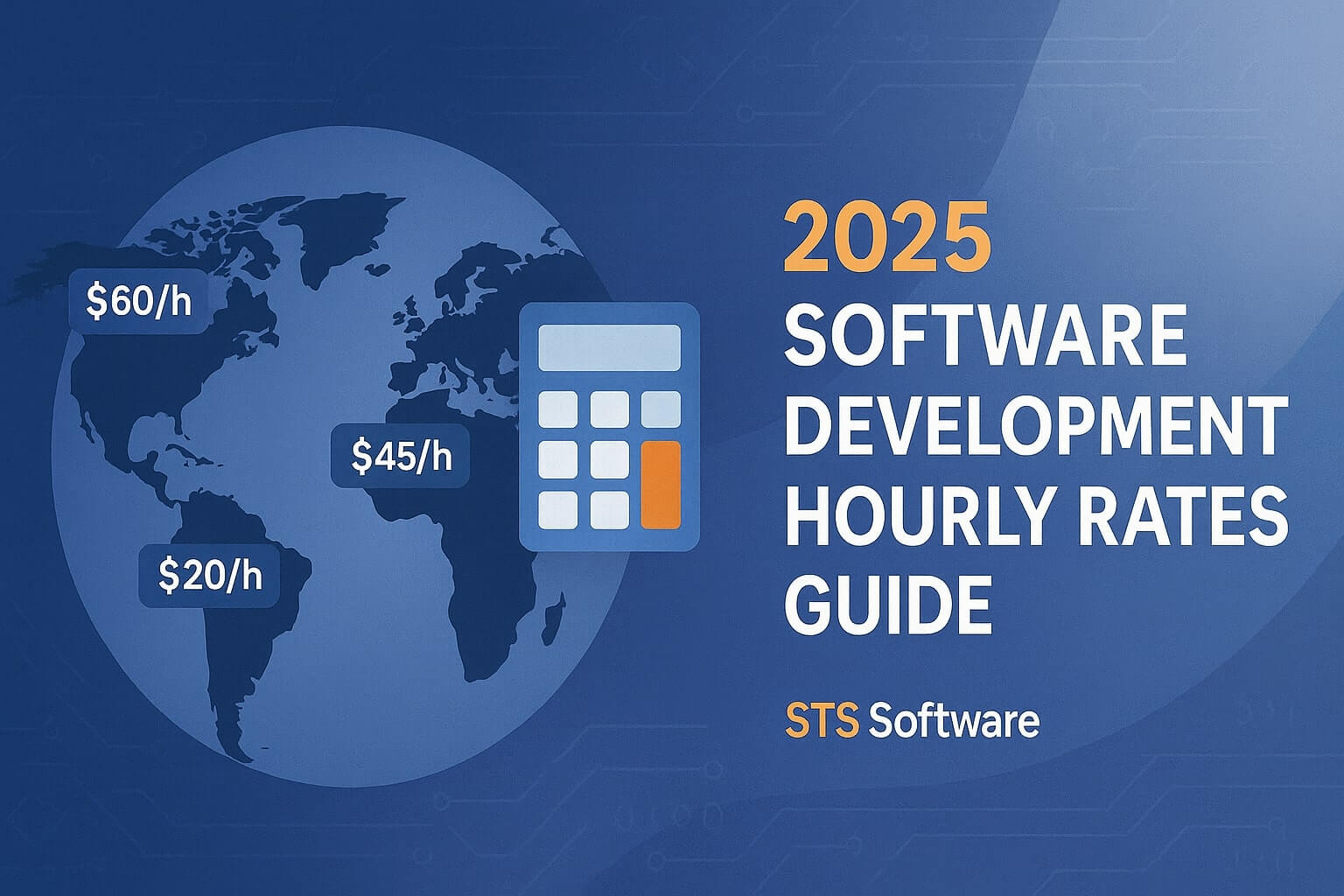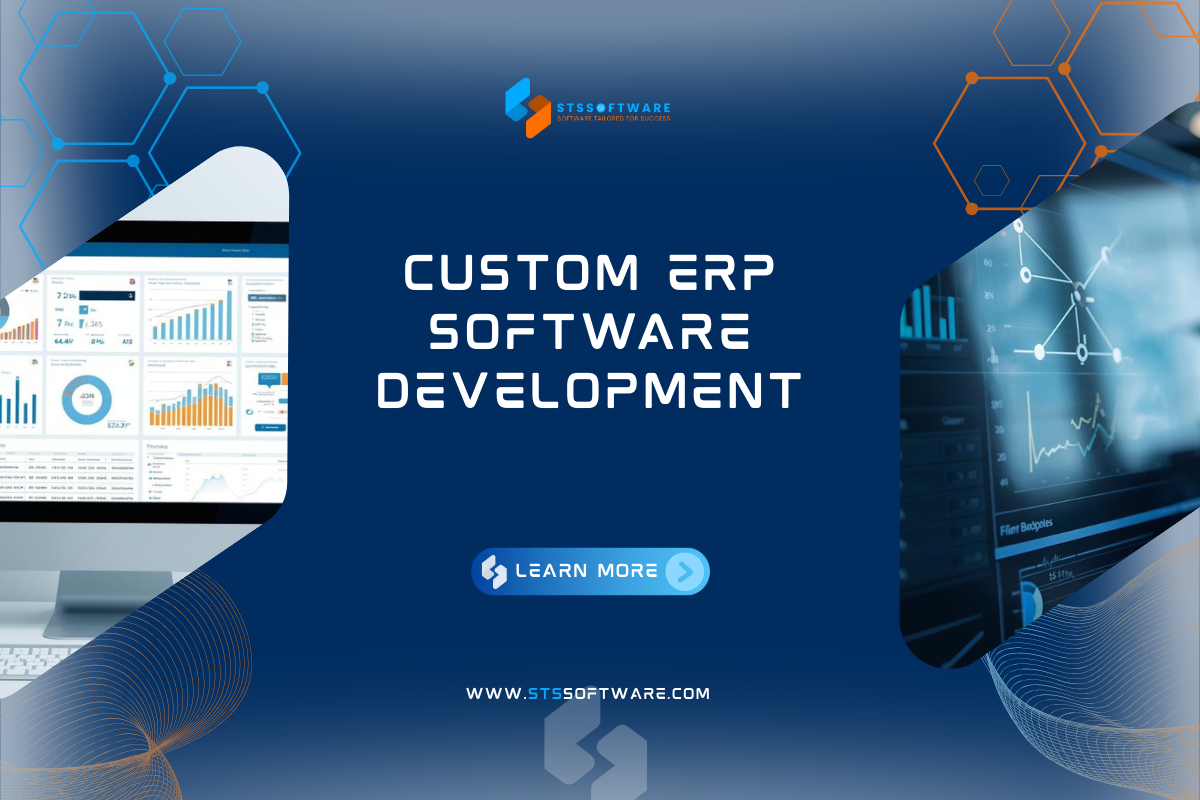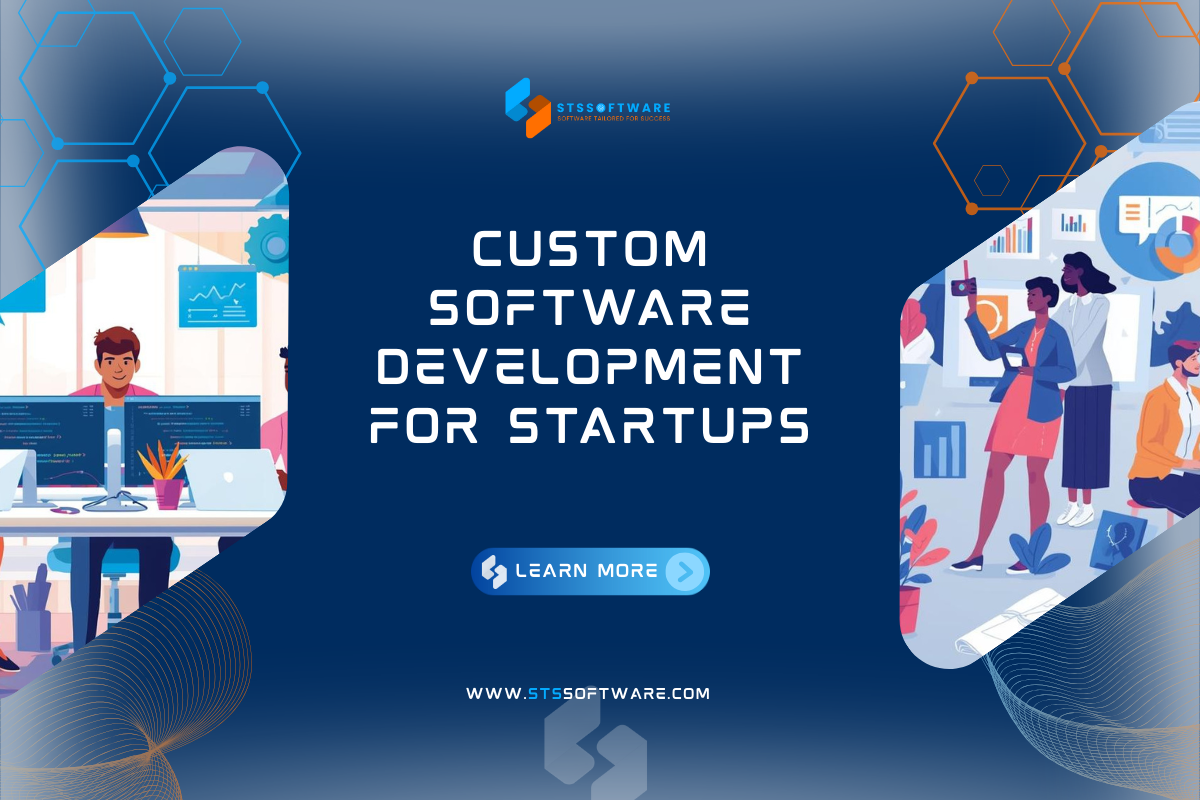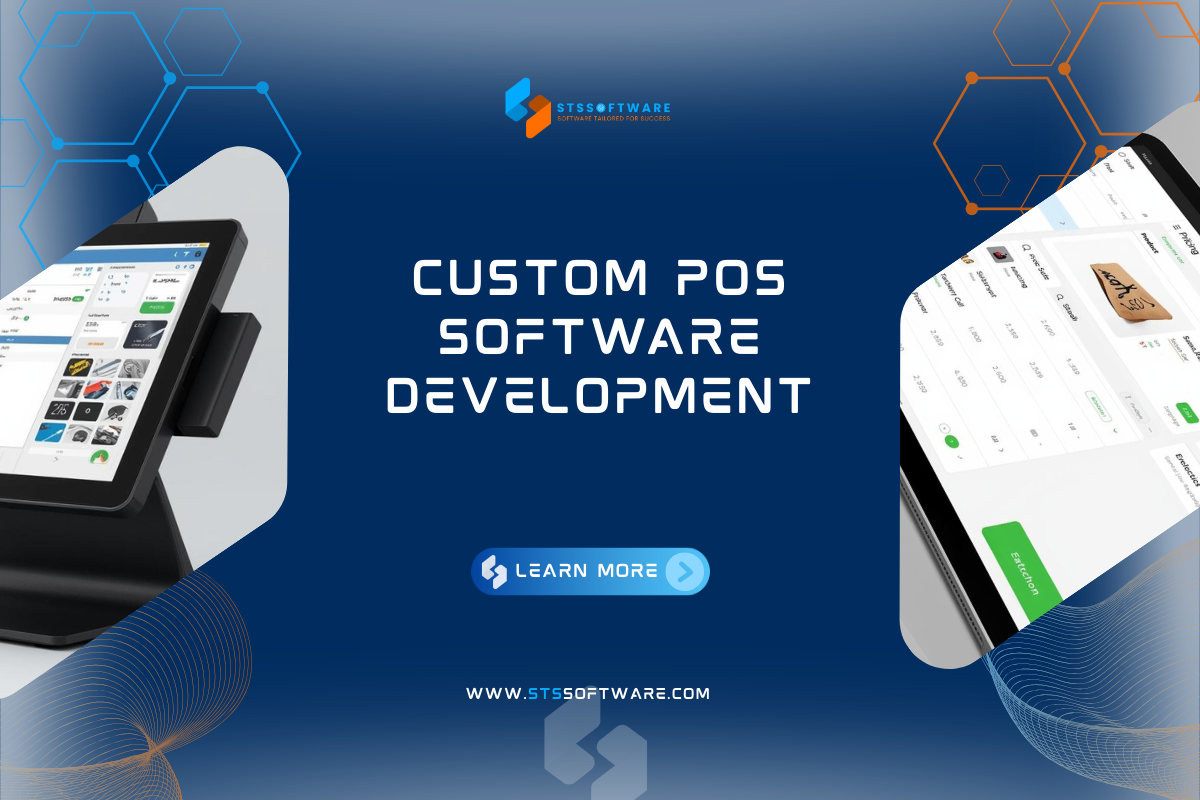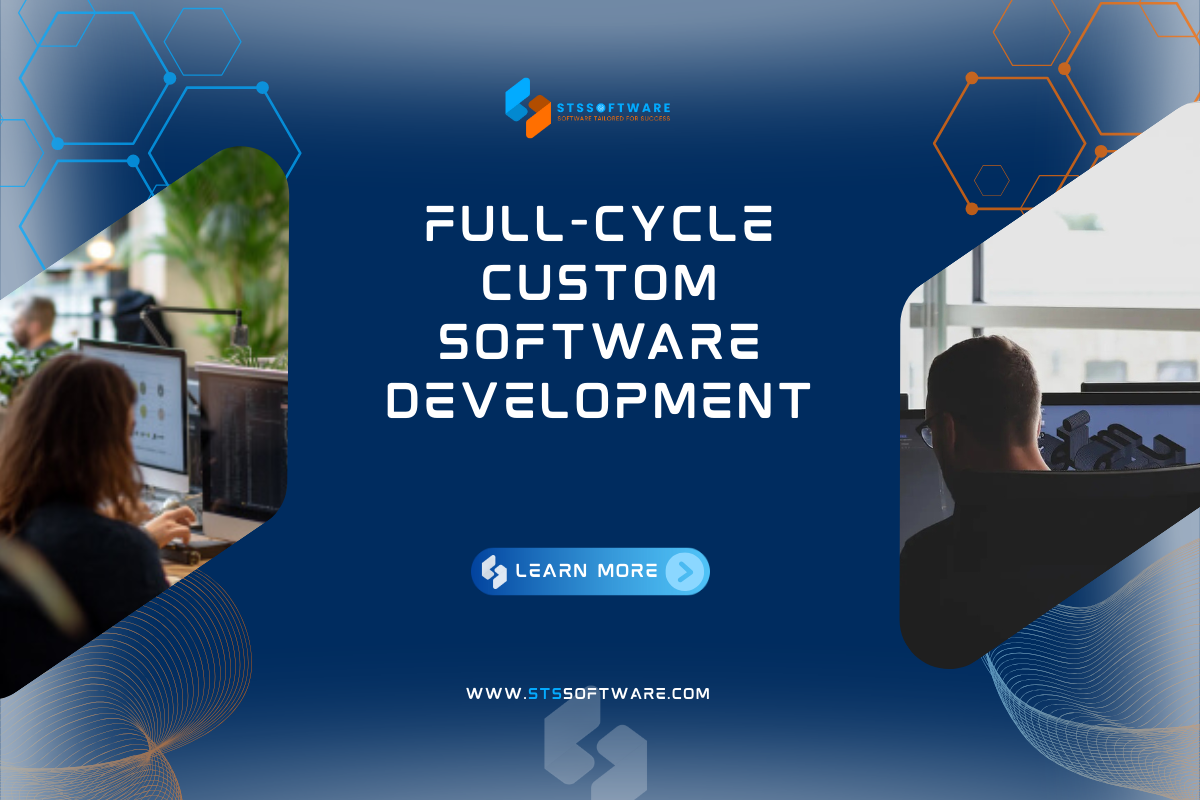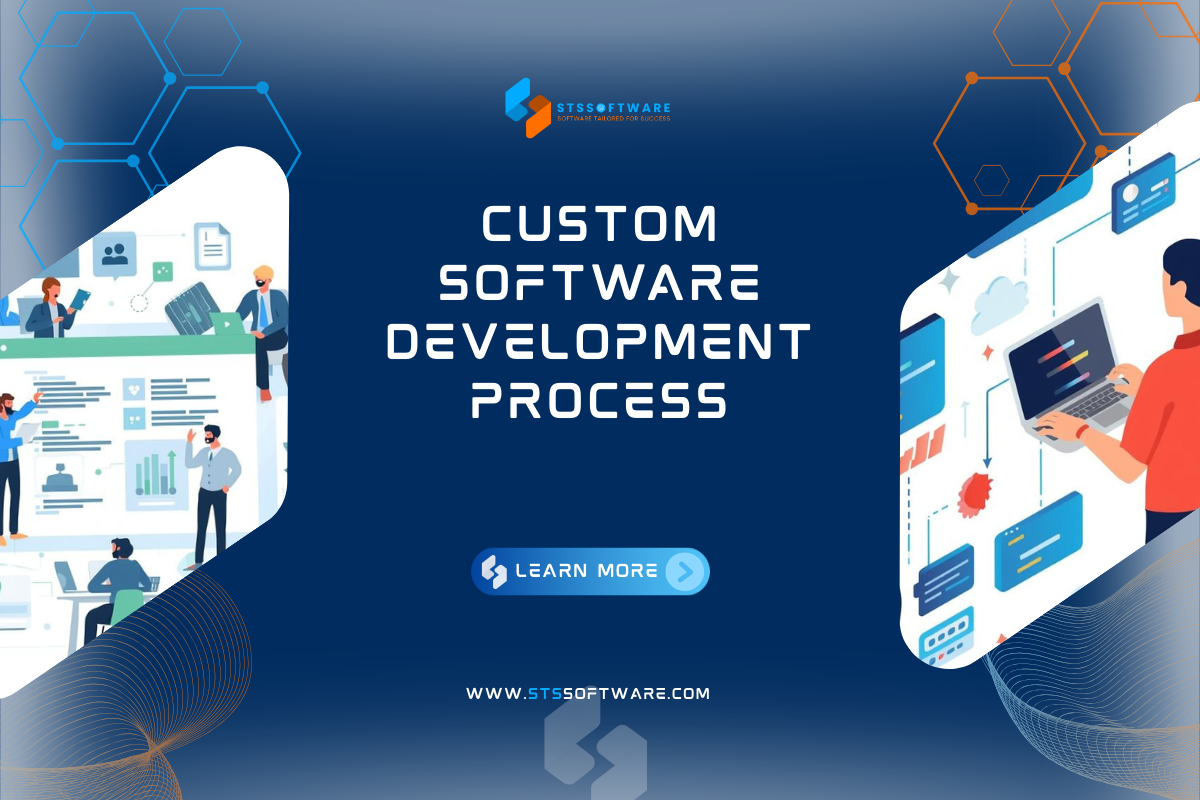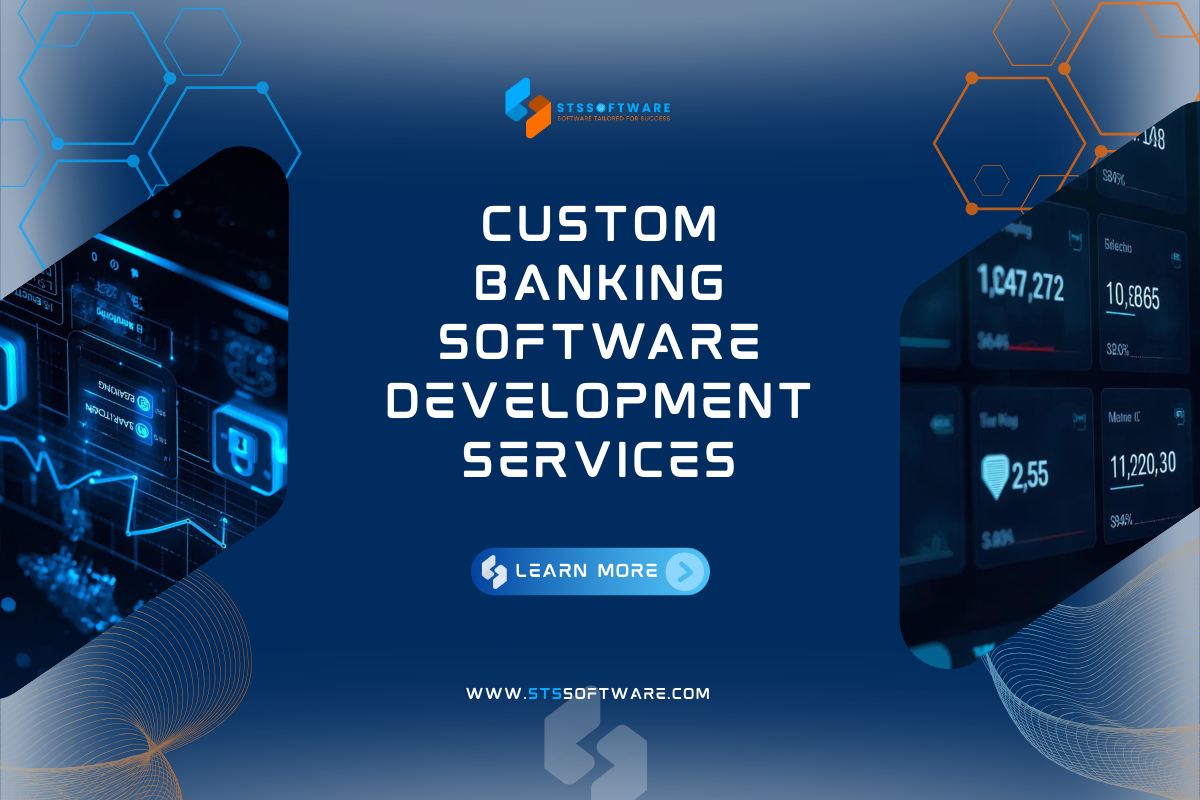In 2025, custom healthcare software development isn’t just an option—it’s a critical strategy. It’s the key to managing unique challenges across patient care, operational efficiency, and regulatory compliance.
This comprehensive guide will walk you through the entire process, covering everything from core necessity to cutting-edge digital trends. Whether you’re a stakeholder evaluating custom software development for healthcare or a professional seeking specialized custom healthcare software development services, this resource provides actionable value. Let the experts at STS Software help you go deeper into this topic.
What is Custom Healthcare Software Development?
Custom healthcare software development refers to the creation of tailored software applications designed specifically for healthcare organizations, providers, or patients. Unlike off-the-shelf solutions, these systems are built from the ground up to meet precise needs, such as integrating with existing electronic health records (EHR) or streamlining telehealth workflows.
This approach ensures that the software aligns perfectly with an institution’s processes, reducing inefficiencies and enhancing data security. For instance, a custom healthcare software development company might develop a platform that automates billing while adhering to HIPAA standards, setting it apart from generic tools.
At its core, custom healthcare technology software development emphasizes scalability and innovation, allowing organizations to evolve with regulatory changes and technological advancements. It’s not just about coding—it’s about solving real-world problems in care delivery and administration.
Process for Custom Healthcare Software Development
The custom healthcare software development process follows an agile methodology to iterate quickly and incorporate feedback. This structured yet flexible approach minimizes risks and aligns with regulatory timelines, typically spanning 6-18 months.
Key steps include:
- Discovery and Planning: Conduct stakeholder interviews to define requirements, scope, and compliance needs. Create a roadmap with milestones.
- Design and Prototyping: Develop wireframes and UI/UX mockups, ensuring HIPAA-aligned architecture. Validate with users via prototypes.
- Development: Build in sprints using secure coding practices. Integrate features like APIs for interoperability.
- Testing and Quality Assurance: Perform unit, integration, and security testing. Simulate real-world scenarios to catch vulnerabilities.
- Deployment and Training: Roll out via cloud or on-premise, with comprehensive staff training. Monitor initial performance.
- Maintenance and Iteration: Provide ongoing support, updates, and analytics-driven enhancements. This phase ensures longevity.
Partnering with a reputable custom healthcare software development company streamlines this, leveraging expertise for faster ROI.
How Much Does It Cost to Build Custom Healthcare Software Development?
The cost of custom healthcare software development in 2025 varies widely based on complexity, features, and location of the development team. Basic apps start at $50,000, while enterprise-level platforms with AI and compliance can exceed $500,000.
Factors influencing expenses include:
- Scope and Features: Simple RPM tools cost $30,000-$100,000; full EHR integrations reach $200,000+.
- Team Location: U.S.-based developers charge $100-$200/hour; offshore options in Eastern Europe or India range $50-$100/hour, potentially halving costs.
- Compliance and Security: HIPAA audits add 10-20% to budgets.
- Timeline: 6-12 months for mid-tier projects; rushed timelines increase rates by 25%.
To optimize, start with an MVP to validate concepts before scaling. Expect ongoing maintenance at 15-20% of initial costs annually.
Healthcare Industry Overview You Should Know
The healthcare industry in 2025 is a $4.5 trillion global market, driven by digital transformation and rising demands for personalized care. With aging populations and chronic disease prevalence, segments are shifting toward tech-enabled models that prioritize prevention over treatment. Custom healthcare software development plays a crucial role here, enabling seamless integration across these domains.
Key Segments and Technology Domains
The industry breaks down into interconnected segments, each leveraging specific tech domains to improve outcomes. These areas highlight opportunities for custom healthcare software development solutions that address pain points like data silos and resource constraints.
Care Delivery & Navigation Tech
This segment focuses on patient-provider interactions, from appointment scheduling to virtual consultations. Technologies like mobile apps and AI chatbots guide patients through care journeys, reducing no-show rates by up to 30%. Custom solutions here often include intuitive portals for real-time navigation.
Monitoring, Imaging & Diagnostics Tech
Advancements in wearables and AI-powered imaging tools enable early detection and remote diagnostics.
For example, machine learning algorithms analyze X-rays with 95% accuracy, accelerating diagnoses. Healthcare custom software development in this area integrates IoT devices for continuous monitoring.
Health Insurance & RCM Tech
Revenue cycle management (RCM) software automates claims processing and eligibility verification, cutting administrative costs by 20%. Custom platforms ensure compliance with evolving payer rules, streamlining reimbursements.
Health Data & Analytics
Big data analytics platforms process vast datasets to uncover trends in population health. Predictive models forecast outbreaks or readmissions, informing strategic decisions. Custom healthcare software development services here emphasize secure, real-time dashboards.
Drug R&D Tech
AI-driven simulations speed up drug discovery, reducing development timelines from years to months. Software tools model molecular interactions, supporting biotech firms in precision medicine.
Digital Therapeutics & Wellness Tech
Apps delivering behavioral interventions for mental health or chronic conditions are booming, with adoption up 40% year-over-year. Custom development focuses on gamified, evidence-based programs.
Digital Pharmacy Tech
E-pharmacy platforms handle prescriptions, deliveries, and inventory via blockchain for traceability. These systems integrate with EHRs to prevent errors and enhance access
Benefits of Custom Healthcare Software Development
Investing in custom healthcare software development yields measurable returns, from enhanced care quality to cost savings. Organizations report up to 25% improvements in operational metrics after implementation. These advantages stem from solutions built to fit unique workflows, fostering long-term value
Improved Patient Outcomes
Tailored software enables proactive care through predictive analytics and personalized plans. For example, RPM features alert providers to anomalies, reducing hospital readmissions by 15%. Patients benefit from timely interventions, leading to better adherence and recovery rates.
Increase in Efficiency and Productivity
Automation of routine tasks like documentation frees clinicians for direct care, boosting productivity by 30%. Custom integrations minimize manual data entry, creating streamlined processes across departments
Better User Adoption (A Foundation for Success)
User-centric design ensures intuitive interfaces, with adoption rates 40% higher than generic software. Training modules and feedback loops encourage buy-in from staff and patients alike.
Long-term Scale and Flexibility
Scalable architectures adapt to growth, such as expanding from a single clinic to a network. Modular designs allow easy updates, future-proofing investments against tech shifts.
Competitive Advantage
Organizations with custom tools differentiate through innovation, like AI-enhanced diagnostics. This positions them as leaders in value-based care, attracting partnerships and talent.
Read more blog: full-cycle custom software development
Essential Features and Key Requirements
Building robust custom healthcare software development solutions requires prioritizing features that balance functionality, security, and usability. These elements ensure the software meets regulatory demands while driving clinical value.
Security and Compliance (HIPAA, GDPR, etc.)
Encryption, role-based access, and audit trails are non-negotiable for protecting sensitive data. Compliance with HIPAA and GDPR prevents breaches, with automated reporting simplifying audits.
Interoperability and Data Integration (EHR/EMR)
FHIR standards enable seamless data exchange between systems, reducing errors by 25%. Custom APIs connect to legacy EHRs, creating a unified view of patient information.
User Experience (UX) and Patient Engagement (The Digital Front Door)
Responsive designs and mobile-first approaches make portals accessible, increasing engagement by 35%. Features like self-scheduling and educational content serve as a welcoming digital entry point.
Automated Workflow and Productivity
AI-driven automation handles tasks like prior authorizations, saving hours per provider daily. Workflow engines route approvals efficiently, minimizing delays.
Remote Patient Monitoring (RPM) and Telehealth
Wearable integrations and video platforms support virtual visits, expanding access to rural areas. Real-time alerts ensure timely responses to vital sign changes.
Clinical Decision Support Systems (CDSS)
Evidence-based alerts guide prescribing and diagnostics, improving accuracy by 20%. Machine learning refines recommendations over time.
Care Coordination and Population Health Management
Dashboards track cohorts, identifying at-risk groups for targeted interventions. Collaborative tools facilitate multidisciplinary communication.
Conclusion
Custom healthcare software development remains a cornerstone for innovation in 2025, empowering organizations to deliver superior care amid evolving demands. By embracing tailored solutions, providers achieve efficiency, compliance, and patient-centric outcomes that off-the-shelf tools simply can’t match.
As trends like AI and IoMT accelerate, now is the time to invest in custom healthcare software development services from experienced partners. This not only future-proofs your operations but also positions you at the forefront of a digital health revolution. Ready to explore options? Consult a trusted STS Software to custom healthcare software development company to begin your journey.
FAQ for Custom Healthcare Software Development
What makes custom healthcare software development different from off-the-shelf solutions?
Custom solutions are built to your exact specifications, ensuring seamless integration and scalability, whereas generic software often requires workarounds that compromise efficiency.
How long does it take to develop custom healthcare software?
Timelines range from 3-6 months for basic apps to 12-24 months for complex systems, depending on scope and iterations.
Is custom healthcare software compliant with HIPAA and GDPR?
Yes, reputable developers prioritize compliance from the design phase, incorporating encryption and audits to meet these standards.
What are the biggest challenges in custom software development for healthcare?
Key hurdles include ensuring interoperability, managing data security, and balancing innovation with regulatory approval—addressed through agile processes and expert teams.
How can AI enhance custom healthcare software?
AI enables predictive analytics, automation, and personalization, such as forecasting patient risks or automating documentation for better outcomes.
Should small practices invest in custom development?
Absolutely—startups and small clinics benefit from affordable MVPs that grow with them, offering ROI through efficiency gains.
How do I choose a custom healthcare software development company?
Look for proven expertise in healthcare, strong portfolios, compliance certifications, and transparent communication to ensure alignment with your goals.



